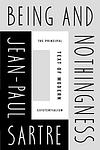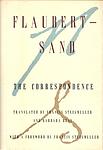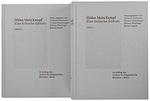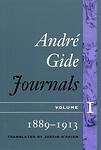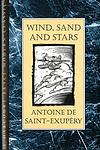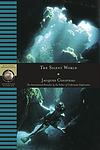The Greatest French, German "Nonfiction" Books Since 1900
Click to learn how this list is calculated.
This list represents a comprehensive and trusted collection of the greatest books. Developed through a specialized algorithm, it brings together 300 'best of' book lists to form a definitive guide to the world's most acclaimed books. For those interested in how these books are chosen, additional details can be found on the rankings page.
Genres
Countries
Date Range
Reading Statistics
Click the button below to see how many of these books you've read!
Download
If you're interested in downloading this list as a CSV file for use in a spreadsheet application, you can easily do so by clicking the button below. Please note that to ensure a manageable file size and faster download, the CSV will include details for only the first 500 books.
Download-
1. The Second Sex by Simone de Beauvoir
This influential work explores the treatment and perception of women throughout history, arguing that women have been repressed and defined only in relation to men. The author presents a detailed analysis of women's roles in society, family, work, and in the creation of their own identities. She discusses the concept of 'the other' and how this has been used to suppress women, while also examining the biological, psychological, and societal impacts of this oppression. The book is a seminal text in feminist theory, challenging traditional notions of femininity and calling for equality and freedom for women.
-
2. Relativity by Albert Einstein
This book is a comprehensive introduction to the theory of relativity written by the physicist who developed the theory. It covers both the special and general theories of relativity and provides an accessible explanation of the physics involved, including the nature of light, time, and gravity. The book also discusses the philosophical implications of relativity and its impact on our understanding of reality. Written for a general audience, it aims to make complex scientific concepts understandable to non-experts.
-
3. The Origins of Totalitarianism by Hannah Arendt
The book explores the roots of totalitarian systems, particularly focusing on Nazi Germany and Stalinist Russia. It delves into the historical, social, and political circumstances that led to the rise of these oppressive regimes, including anti-Semitism, imperialism, and the decline of the nation-state. The author further discusses the nature of power, the role of propaganda, and the manipulation of the masses in these systems, providing a comprehensive analysis of totalitarianism.
-
4. The Myth of Sisyphus by Albert Camus
This book is a philosophical essay that explores the concept of absurdity, and how individuals should respond to life's inherent meaninglessness. It posits that life is essentially absurd due to the conflict between our desire for understanding and the chaotic, indifferent universe. The author argues that the only proper response to this absurdity is to live life to its fullest, embracing and rebelling against the absurdity, rather than resorting to suicide or turning to religion or philosophy for false comfort. The story of Sisyphus, condemned to eternally roll a boulder up a hill only for it to roll back down, is used as a metaphor for the human condition.
-
5. Being and Nothingness by Jean Paul Sartre
This philosophical work delves into the concept of existentialism and phenomenology, offering an in-depth analysis of human consciousness and existence. The author argues that we are all essentially free and responsible for our actions, and that we construct our own identities through our actions and interactions with others. The book also explores the idea of 'nothingness' and 'bad faith', suggesting that we often deny our freedom and hide from the responsibility of our actions, leading to a life of inauthenticity.
-
6. Mythologies by Roland Barthes
This book is a collection of essays that explore the layers of cultural and societal meanings that are imbued in everyday objects, activities, and phenomena. The author decodes the symbols and signs embedded in things as varied as wrestling, soap detergents, toys, and even the face of Greta Garbo. The book is a pioneering exploration of semiotics, the study of signs and symbols, and it challenges readers to question and understand the cultural connotations and ideologies that are presented as natural or given in our everyday lives.
-
7. Tristes Tropiques by Claude Lévi-Strauss
"Tristes Tropiques" is a blend of autobiography, travel literature, and anthropology by a renowned scholar. The book is a recounting of the author's travels and anthropological work, primarily in Brazil, in the 1930s. It provides a critical and philosophical reflection on his experiences and observations, offering insights into indigenous tribes like the Nambikwara and Tupi-Kawahib, and exploring themes of cultural change, the nature of anthropology, and the author's own disillusionment with Western civilization.
-
8. Words by Jean Paul Sartre
This book is a memoir that explores the author's early life and development as an intellectual. He reflects on his childhood experiences in a non-linear narrative, detailing his relationship with his mother and grandfather, his early education, and his evolving understanding of language and literature. The author also delves into his philosophical ideas, examining the concept of existentialism and the role of the individual in society. The book serves as a profound exploration of the power of words and the impact of childhood experiences on adult life.
-
9. Being and Time by Martin Heidegger
Being and Time is a seminal work that explores the concept of "being" through a detailed analysis of human existence. The book delves into existential and phenomenological thought, examining how humans relate to the world and their own existence. The author argues that people are always "being-in-the-world" and that understanding this fundamental state is crucial to comprehending the broader concept of being. The work also introduces the concept of "Dasein," a term used to describe the specific type of being that humans possess.
-
10. Economy and Society by Max Weber
"Economy and Society" is a comprehensive analysis of the relationship between economy and society, focusing on the role of social actions and their impact on economic systems. The book presents a theoretical framework for understanding how economic and social structures influence each other, including the role of bureaucracy, power, and authority. The author also introduces his famous concept of the "Protestant Ethic", linking the rise of capitalism to certain aspects of Christian beliefs. The book is considered a fundamental text in sociology and economics, providing a deep understanding of social and economic phenomena.
-
11. Eichmann in Jerusalem: A Report on the Banality of Evil by Hannah Arendt
This book is a thought-provoking exploration of the trial of Adolf Eichmann, a major organizer of the Holocaust. The author argues that Eichmann was not a fanatical ideologue, but rather an ordinary individual who simply followed orders and bureaucratic procedures, highlighting the terrifying potential for evil in any system that values obedience over personal responsibility. The concept of the "banality of evil" is introduced, suggesting that horrific acts can be committed by ordinary people under certain conditions.
-
12. The Rings of Saturn by W. G. Sebald
"The Rings of Saturn" is a richly detailed travelogue that follows the narrator's journey along the coast of Suffolk, England. The narrative weaves together history, literature, and personal anecdotes, exploring topics as diverse as the decline of the herring industry, the horrors of colonialism in the Congo, and the life of philosopher Sir Thomas Browne. The book is characterized by its melancholic tone, its digressive style, and its meditative reflections on memory, time, and decay.
-
13. The George Sand-Gustave Flaubert Letters by Gustave Flaubert
This book is a compilation of the personal correspondence between two of the most prominent French literary figures of the 19th century. Their letters offer an intimate look into their lives, thoughts, and the deep friendship they shared. The exchange covers a wide range of topics, including their literary works, their critiques of each other's work, their views on contemporary society, politics, and culture, as well as their personal joys, sorrows, and struggles.
-
14. Mein Kampf by Adolf Hitler
This book is a two-volume work written by a prominent dictator during his imprisonment in 1924. It outlines his political ideology and future plans for Germany, combining elements of autobiography with an exposition of his views on race, nationality, and governance. The author's main thesis is that the German-speaking 'Aryan' race is superior to all others, and that it is the duty of the state to preserve the purity of this race through policies of racial segregation, expansionism, and extermination. The book also contains detailed discussions on the author's hatred towards Jews, Marxism, and the parliamentary system.
-
15. Discipline and Punish by Michel Foucault
This book delves into the historical evolution of the penal system, examining how Western societies have transitioned from a regime of violent, public physical punishment to a more subtle form of surveillance and control. It introduces the concept of the "panopticon," a metaphor for modern disciplinary societies that exercise power through observation and normalization rather than through overt physical coercion. The work explores the relationship between power, knowledge, and social control, arguing that disciplinary mechanisms are embedded in various institutions, such as schools, hospitals, and prisons, shaping individuals and maintaining order in society.
-
16. The Mediterranean And The Mediterranean World In The Age Of Philip Ii by Fernand Braudel
This seminal work offers a comprehensive analysis of the Mediterranean region during the 16th century, focusing on the complex social, political, and economic landscapes that defined the era of Philip II of Spain. The book transcends traditional historiography by emphasizing the geographical and ecological factors that shaped human activity, from the ebb and flow of commerce and the patterns of agrarian life to the rise and fall of empires. Through a meticulous study of the Mediterranean world, the narrative weaves together the intricate tapestry of cultures, religions, and power dynamics that characterized the period, providing a vivid portrayal of the enduring influence of the environment on the course of human history.
-
17. The Protestant Ethic and the Spirit of Capitalism by Max Weber
This book is a sociological study that explores the relationship between the ethics of ascetic Protestantism and the emergence of the spirit of modern capitalism. The author argues that the religious ideas of groups such as the Calvinists played a role in creating the capitalistic spirit. The work is noted for its rigorous methodology and its contribution to the broader understanding of the origins and development of capitalism. It has been widely influential across social sciences, especially in sociology and economics.
-
18. The Emigrants by Winfried Georg Sebald
"The Emigrants" is a novel that explores the experiences and memories of four different emigrants, each with a unique and complex history. The narrative primarily focuses on the psychological impact of displacement and the haunting nature of the past. The author delves deep into their lives, revealing their struggles with identity, loss, and the persistent influence of their roots. The narrative is interwoven with historical events, photographs, and other documents, creating a rich tapestry that blurs the line between fact and fiction.
-
19. Promise at Dawn by Romain Gary
"Promise at Dawn" is a semi-autobiographical novel that explores the life of a young man growing up in Eastern Europe, and later in France, under the shadow of his ambitious and eccentric mother. The protagonist's journey takes him through various phases of his life from his childhood, through his experiences as a pilot in World War II, to his adult life as a diplomat and a writer. The story is a tribute to the protagonist's mother, who instilled in him the values of courage, resilience, and the pursuit of grandeur, even in the face of adversity.
-
20. Journals: 1889-1913 by André Gide
"Journals: 1889-1913" is a compilation of personal entries by a prominent French author, written over a span of 24 years. The journals offer a deep insight into the author's thoughts, emotions, and experiences, providing a unique window into his personal life and his creative process. The entries also reflect on the social, political, and cultural events of the time, making the journals not only a personal memoir but also a historical document of late 19th and early 20th century France.
-
21. The Rebel by Albert Camus
"The Rebel" is a philosophical exploration of rebellion and revolution. It dissects the nature and origins of rebellion, arguing that it arises from a basic human refusal to accept injustice. The book delves into the many forms rebellion can take, from personal revolt to political revolution, and examines the consequences and ethics of each. The author also critically evaluates the rebellious attitudes of various historical figures and movements, highlighting the potential for rebellion to either affirm or destroy human dignity.
-
22. Decline of the West by Oswald Spengler
"Decline of the West" is a comprehensive historical and philosophical work that explores the rise and fall of civilizations. The author argues that every civilization has a life cycle, from birth to maturity and finally to decline. He suggests Western civilization is in its final stage of decline, comparing it to the end phases of the Greco-Roman civilization. The book also introduces the concept of 'pseudomorphosis', where a civilization is so deeply influenced by a previous culture that it suppresses its own authentic culture.
-
23. Wind, Sand and Stars by Antoine de Saint-Exupéry
This book is a memoir by an early twentieth-century French aviator, sharing his experiences as a pioneer of aviation in the 1920s and 1930s, particularly in remote places such as the Sahara Desert and the Andes Mountains. The author reflects on the nature of adventure, the allure of the unknown, and the profound connection between human beings and the natural world. The book is also notable for its philosophical musings on the nature of life and death, solitude and solidarity, and the human condition.
-
24. The Silent World by Jacques Cousteau
"The Silent World" is an autobiographical account of a pioneering oceanographer and his team's underwater explorations. The book documents their adventures and discoveries, including the development and use of the first scuba diving equipment. The author shares his experiences of exploring shipwrecks, interacting with various marine life, and the dangers they faced in the depths of the ocean. The book also emphasizes the importance of marine conservation and the need to protect our oceans.
-
25. The Fear Of Freedom by Erich Fromm
The book explores the psychological and societal mechanisms that lead individuals to relinquish their autonomy and seek security in authoritarian systems, despite the inherent dangers of such a surrender. It delves into the historical context of the 20th century, particularly the rise of fascism and totalitarianism, to understand the paradoxical inclination of people to escape freedom's responsibilities. The author argues that true freedom requires not only the absence of external constraints but also the presence of inner psychological conditions that enable self-reliance, critical thinking, and the ability to love and connect with others. The work challenges readers to confront the difficult task of achieving positive freedom through self-awareness and the development of one's human potential.
Reading Statistics
Click the button below to see how many of these books you've read!
Download
If you're interested in downloading this list as a CSV file for use in a spreadsheet application, you can easily do so by clicking the button below. Please note that to ensure a manageable file size and faster download, the CSV will include details for only the first 500 books.
Download



